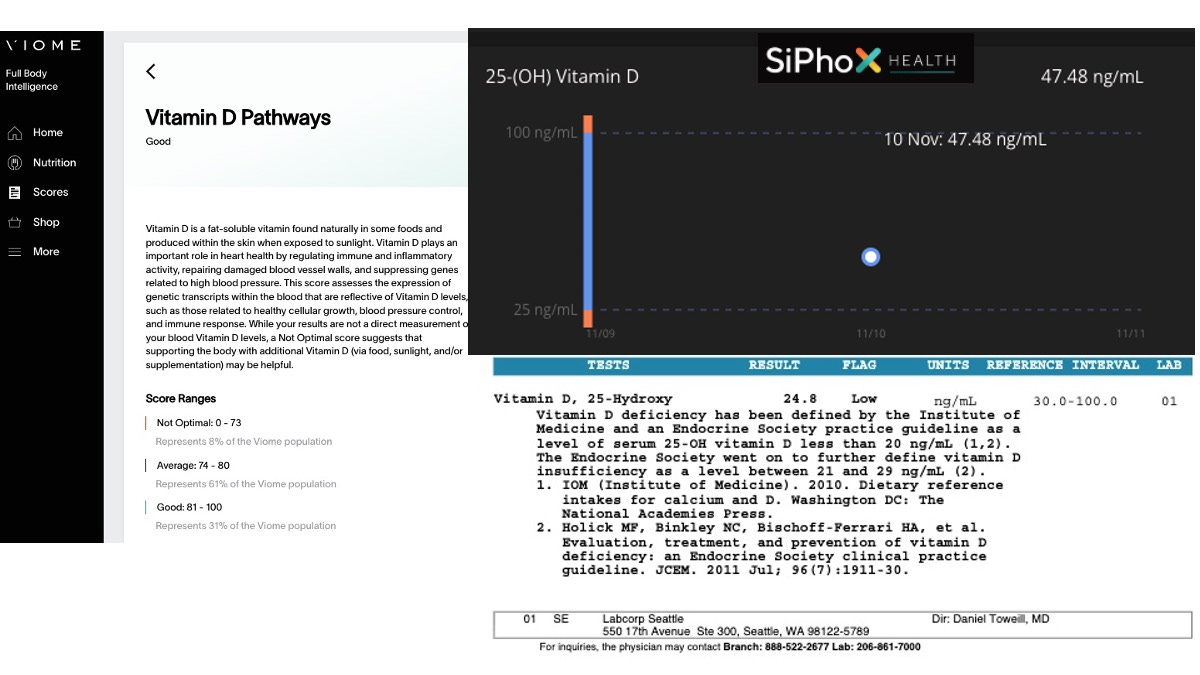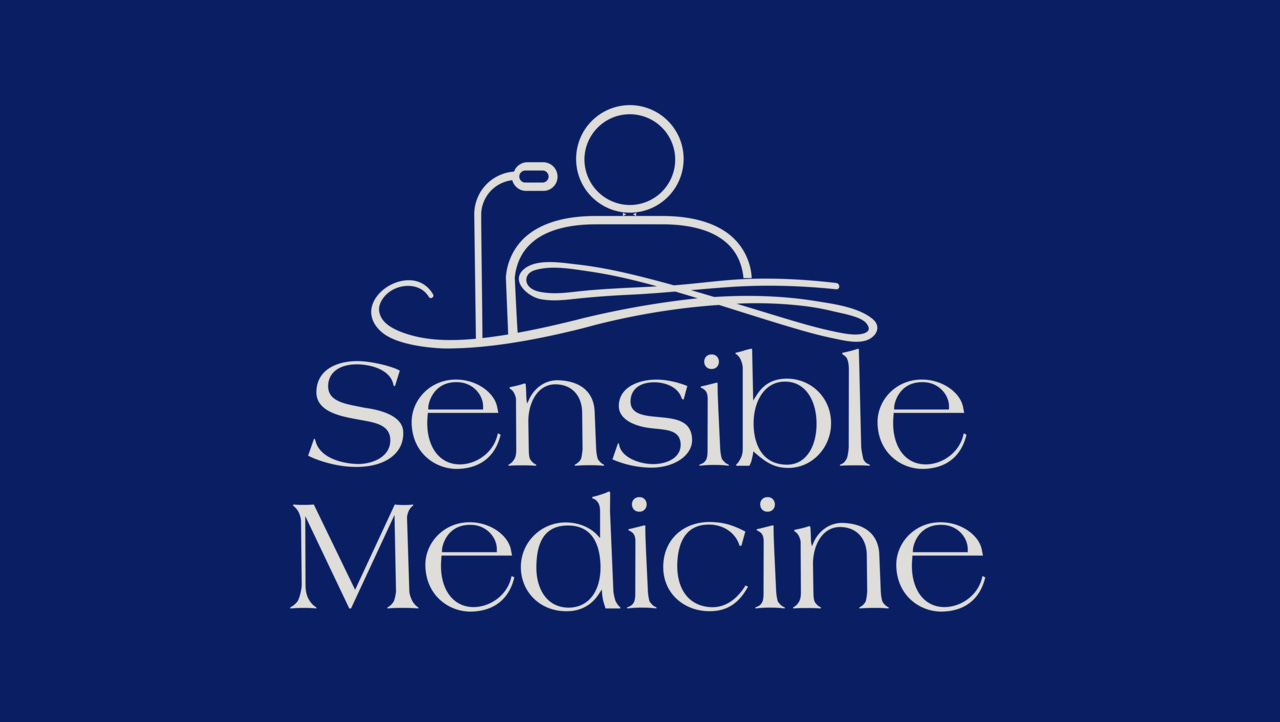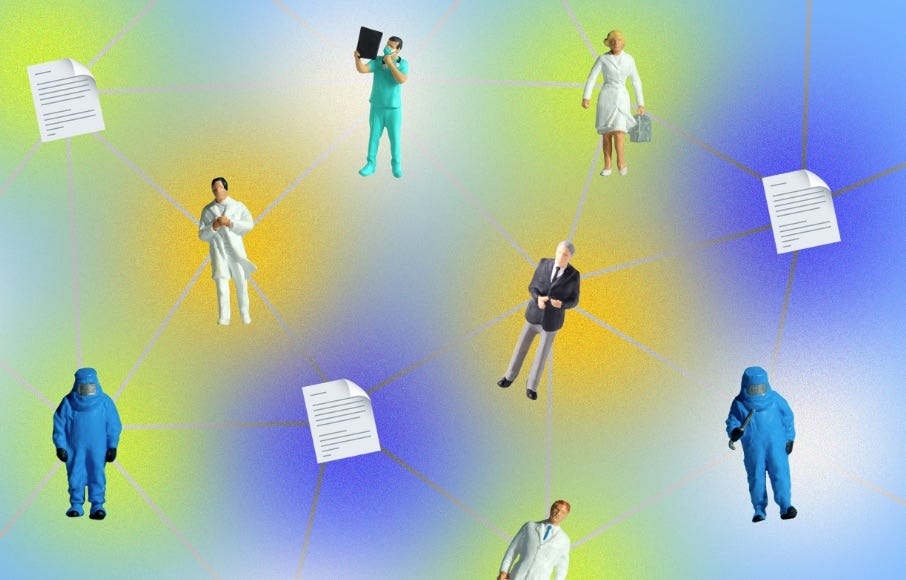Personal Science Week - 17 Nov 2022
Blood tests compared, Best COVID information, DIY Peer Review
Personal Science is about using the techniques of science for personal rather than professional reasons. This is a weekly update, delivered each Thursday, of ideas we think are useful to anyone striving to apply science to everyday life.
Blood tests compared
After multiple personal recommendations for the new at-home blood test from SiPhox Health, I forked over $95 to try their 17-biomarker diagnostic. It’s a simple test: prick your finger to draw a few drops of blood onto a paper card that you throw in the mail. I tested simultaneously with a blood draw from a professional LabCorp phlebotomist one recent morning after a 14 hour fast. My results came back in about five days.
I’ll have a comprehensive review soon, but here’s a sneak peek: My lipid (cholesterol) results were nearly identical across the two tests, but some of the other numbers were significantly different. For example, here are the Vitamin D results, together with an analysis from a Viome Full Body Intelligence test taken a month ago.
Both SiPhox and Viome conclude that my Vitamin D levels are fine, but LabCorp disagrees. Neither Viome (which now includes a blood test) nor SiPhox enjoy the same level of regulatory approval as LabCorp, which most people would consider the gold standard. But is that necessarily true? And what are the implications for any actions I might consider? Stay tuned for my detailed conclusions.
Best COVID-19 Information
For most of us, the COVID pandemic is effectively over. But Personal Scientists are always curious, always open to the possibility that new information might emerge that alerts us to new dangers. What are the best places to gather the latest quality information?
UCSF Professor Vinay Prasad gets our vote for the best source. Of all the people we’ve followed since the beginning (and before!) the pandemic, his observations and suggestions have been most consistently correct. Dr. Prasad is a Professor of Epidemiology and Biostatistics and a long-time expert on evidence-based medicine. His excellent 2015 book Ending Medical Reversal: Improving Outcomes, Saving Lives, documents dozens of high-profile, widely-prescribed FDA-approved medical treatments (mostly in his speciality of oncology) that were later “reversed” — proven to be ineffective or worse, despite extensive regulatory review (think: mammograms, prostate testing, opioids and many more). Prasad is unmatched at picking apart peer-reviewed scientific studies with brutal precision. If the evidence doesn’t match the hype, count on him to expose the reasons. On the other hand, when he says something works, believe him.
His short Pinned Twitter Thread is a compilation dating back to early 2020 of his various stances on COVID issues of the day. For a recent sample of how he and his colleagues think, see this analysis of that recent and widely-publicized NEJM study of masking in Boston schools. Spoiler alert: that study was poorly done and it’s shameful that it received the wide publicity that it did, much less get publication in an otherwise prestige journal.
Follow Vinay Prasad on Twitter @vprasadmdmph, subscribe to his excellent Substack Sensible Medicine, or listen to his podcast Plenary Session.
For more on COVID
In Personal Science Week - 6 Oct 2022 we wrote about an interesting clinical trial for a new at-home test for COVID immunity. If you or a family member tests positive for COVID, please see Personal Science Week - 1 Sep 2022 for information about a free government-run study that will pay you to track your progress.
Peer Review on the Blockchain
The COVID pandemic accelerated many overdue changes to the way professional science is conducted, but one area especially interesting for Personal Scientists is the growing acceptance of pre-print scientific papers. Because these servers (like bioRxiv or medRxiv) don’t go through the laborious (and often unproductive) process of peer review, it’s tempting to treat them as less authoritative. (P.S. Columbia University statistician Andrew Gelman has a wonderful summary of why peer review is over-rated)
But now there are a growing number of alternatives offering “post peer review”. The online publication NEO.LIFE recently published my review of some of these blockchain-based peer review sites, including my experience with ResearchHub.
We discussed ResearchHub and other publication sources for Personal Scientists in Personal Science Week - 15 Sep 2022.
About Personal Science
The word “science” in everyday conversation is often mistakenly used as a synonym for “truth”, a regrettable confusion that often discredits all scientists when an overhyped finding is later shown to be false. Similarly, many people say “science” when really they are simply expressing wonder at beautiful aspects of the physical world. Personal Scientists, by contrast, treat science as a verb: something you do rather than passively appreciate.
This newsletter is a brief summary published for people who want to do science for personal reasons, rather than as a job. Please leave a comment if you have questions or suggestions that can benefit other Personal Scientists.





